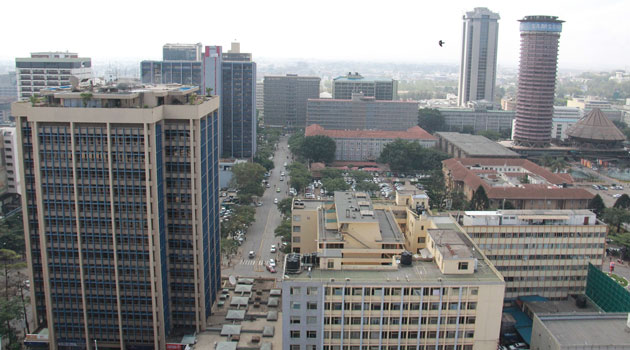What Makes a City Smart – Is Nairobi a Smart City?

As the world’s population continues to migrate towards urban centers, the concept of a “smart city” has gained traction as a means of using technology and data to improve the quality of life for urban residents, increase sustainability, and promote economic growth. While there is no single definition of what constitutes a smart city, there are several key features commonly associated with this term. In this article, we will explore what makes a city smart, and evaluate whether Nairobi, Kenya is a smart city.
A smart city is a city that uses advanced technology and data to improve urban services and infrastructure, enhance sustainability, and promote economic growth. This includes the use of smart sensors, the Internet of Things (IoT), and other digital technologies that collect and analyze data to optimize services such as traffic management, waste collection, and energy consumption. A smart city also involves the use of data to inform decision-making and policy development. By collecting and analyzing data from various sources, city authorities can gain insights into urban trends and identify areas for improvement.
Smart cities are characterized by a high level of citizen participation and engagement. By involving residents in the planning and development of urban initiatives, smart cities can ensure that their policies and programs are responsive to the needs of their communities. This can include initiatives such as citizen science projects, community engagement forums, and participatory budgeting processes.
Africa and the Rise of Smart Cities

According to Deloitte, Africa is well-positioned to lead the way in smart city initiatives due to several factors. These include the rise of the African middle class, intense urbanization, mobile connectivity, and limited legacy drawbacks. Over the past decade, several African countries have attempted to develop smart cities as a means of improving their economic growth and reducing poverty.
These smart city initiatives include the development of Konza Techno City in Kenya, where on behalf of the government, the Konza Technopolis Development Authority (KoTDA), the body charged with developing Africa’s first ‘Smart City’ agreed into an agreement with the United Nations Human Settlements Programme (UN-Habitat) to standardize the development of the Konza Techno City. Others are Eko Atlantic City in Nigeria, HOPE City in Ghana, Senegal’s Akon City, an Ethiopian city styled as the “real Wakanda” after the film Black Panther, and Kigali Innovation City in Rwanda.
Kenya, a country of 56 million people, with a GDP of $110.35 billion is one of the four leading tech startup ecosystems on the continent with 242 individual Kenyan startups securing $1,281,918,200 worth of investment between January 2015 and mid-November 2022, according to Disrupt Africa’s Kenyan Tech Startup Ecosystem Report 2022.
The Kenyan tech startup ecosystem which has been putting up a commanding lead over the years has a track record of successfully implementing large-scale technological innovations that enhance inclusiveness and connectivity. These include the widespread adoption of Safaricom’s M-Pesa mobile money schema, which is now used in over 7 countries, boasting millions of active users, and processing up to 614 million transactions per month. Another example is pay-as-you-go solar energy initiatives like M-Kopa.
Is Nairobi a Smart City?
Nairobi, the capital city of Kenya, has made some strides toward becoming a smart city, especially in the development of its ICT infrastructure, with initiatives such as the installation of free public Wi-Fi hotspots and the launch of a digital platform to enable residents to access government services. However, there is still a significant digital divide in the city, with many residents lacking access to basic digital technologies.
Already deemed the Silicon Savannah, Kenya’s Smart City efforts are well underway. Konza Techno City, 60km from the center of Nairobi, is currently in the planning stages. Moreover, the Nairobi Metropolitan Services (NMS) has been established as a special-purpose vehicle to manage and coordinate the delivery of public services in the city. This is expected to help improve service delivery and enable more effective coordination of urban initiatives.
However, Nairobi as a city faces several challenges in terms of infrastructure and service delivery. For instance, traffic congestion is a major issue in Nairobi, with long commute times and high levels of air pollution. Waste management is also a significant challenge, with much of the city’s waste being dumped in open landfills, posing health and environmental risks.
Despite these challenges, there are some promising initiatives underway in Nairobi that could help it move closer to becoming a smart city. For instance, the city has launched a project to install smart traffic lights that adjust their timings based on real-time traffic patterns, which could help to reduce congestion and improve air quality. The city has also launched an initiative to install solar-powered streetlights, which could help to reduce energy consumption and improve safety in low-income areas.
